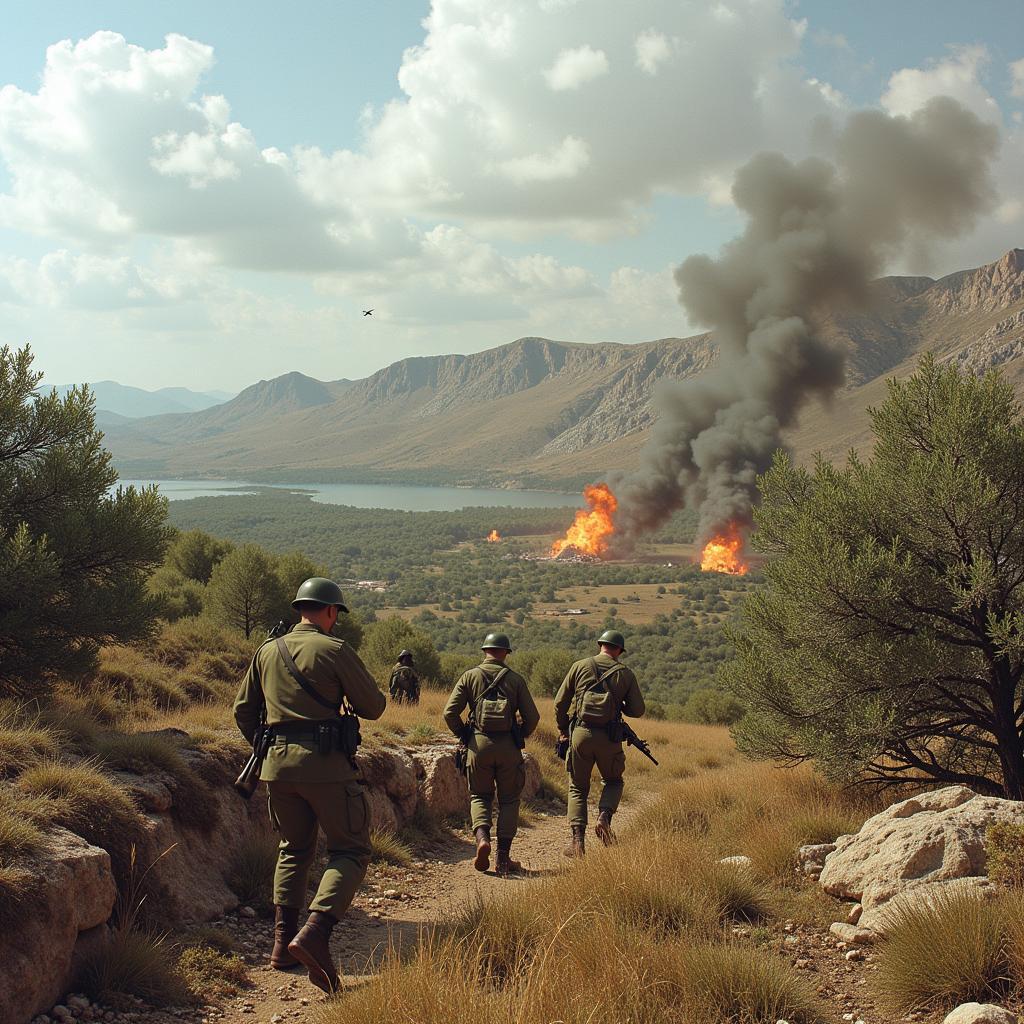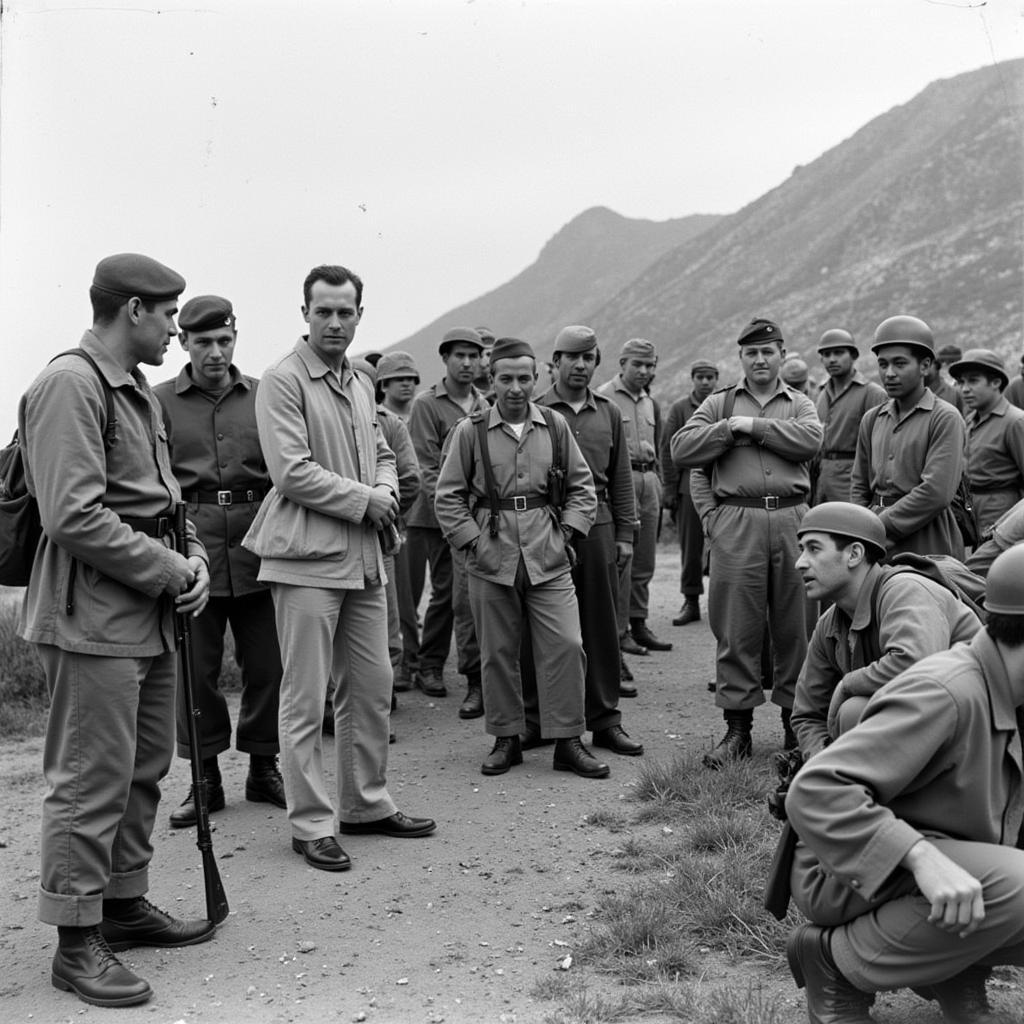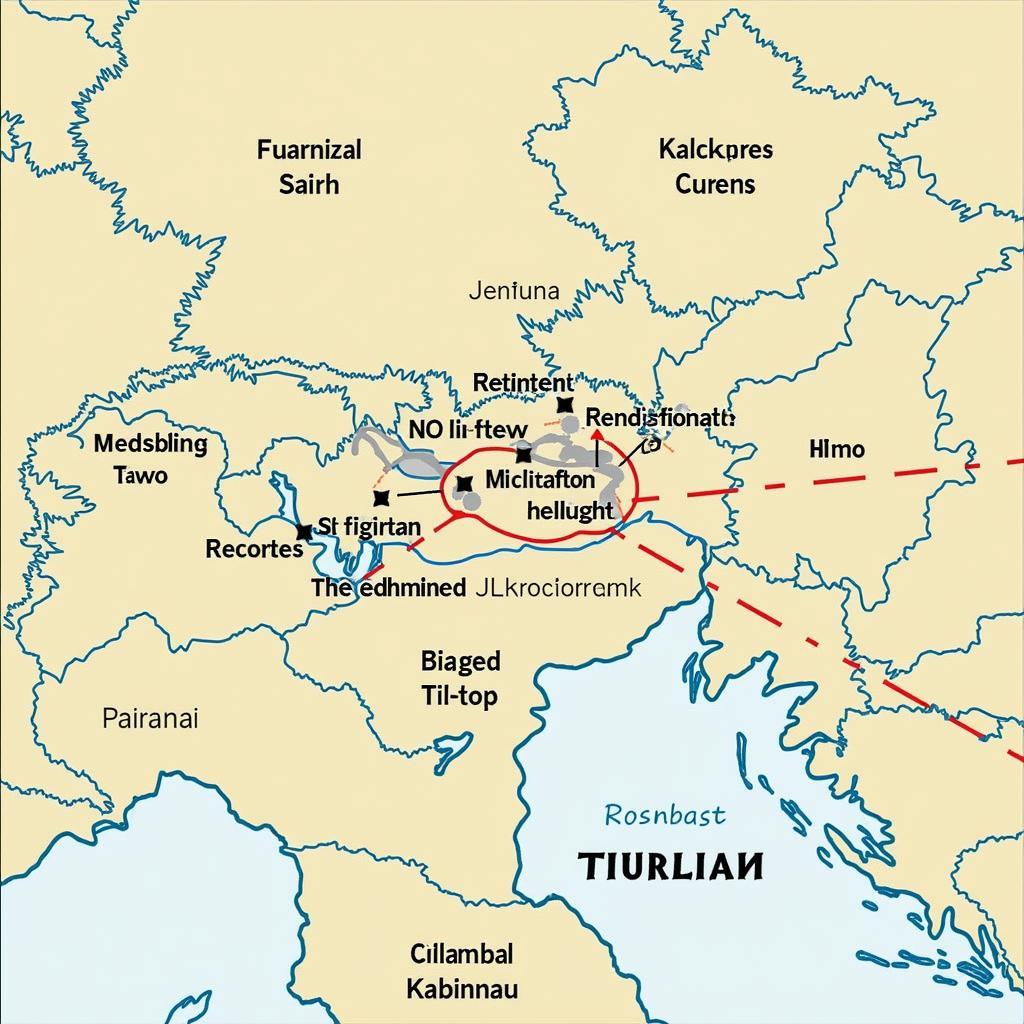The Battle Of Rethymno, a fierce struggle during World War II, stands as a testament to the unwavering courage of Allied forces against the overwhelming might of the German Wehrmacht. This pivotal battle, though less known than some, played a significant role in the broader context of the Battle of Crete.
Unraveling the Battle of Rethymno: A Pivotal Moment in Crete
The Battle of Rethymno commenced on May 20, 1941, as part of the German invasion of Crete (Operation Mercury). The objective of the German forces, primarily paratroopers and airborne troops, was to capture the strategically important town and airfield of Rethymno, located on the north coast of the island. They faced a determined defense from Australian, Greek, and British forces, significantly outnumbered and outgunned.
The initial German assault, involving airborne landings, was met with fierce resistance. The defenders, despite their limited resources, inflicted heavy casualties on the invading forces. The battle evolved into a grueling struggle for control of key positions, with both sides engaging in close-quarters combat and artillery exchanges. The terrain, characterized by rugged hills and olive groves, provided some cover for the defenders, allowing them to stage ambushes and slow the German advance.
 Trận chiến Rethymno tại Crete
Trận chiến Rethymno tại Crete
The Courage of the Allied Forces in the Face of Adversity
The Allied troops at Rethymno displayed remarkable resilience and bravery. Despite facing overwhelming odds, they fought tenaciously, inflicting heavy casualties on the enemy. Their determined resistance played a crucial role in disrupting the German timetable for the conquest of Crete. The Australian 2/11th Battalion, in particular, distinguished itself in the fighting, earning the admiration of both their allies and their adversaries.
The Greek soldiers, fighting alongside the Australians and British, also demonstrated immense courage and patriotism. Their local knowledge of the terrain proved invaluable in the defense of Rethymno. The combined efforts of these Allied forces, despite their numerical inferiority, significantly hampered the German advance.
 Quân đội Đồng minh tại Rethymno
Quân đội Đồng minh tại Rethymno
The Aftermath and Legacy of the Battle of Rethymno
Despite their valiant efforts, the Allied forces at Rethymno were eventually forced to surrender after several days of intense fighting. The Germans, having secured reinforcements and heavier weaponry, overwhelmed the defenders. However, the prolonged resistance at Rethymno contributed to the overall delay in the German conquest of Crete, which ultimately had strategic implications for the war in the Mediterranean.
The Battle of Rethymno serves as a powerful reminder of the sacrifices made by Allied forces during World War II. It stands as a testament to the courage and determination of those who fought against overwhelming odds to defend freedom and liberty. The battle, though less widely known, deserves recognition for its significance in the context of the larger conflict.
The Significance of Rethymno in the Battle of Crete
The prolonged resistance at Rethymno forced the Germans to divert troops and resources, which could have been used elsewhere in the invasion of Crete. This delay bought valuable time for the Allies to organize their defenses in other parts of the island. The battle also highlighted the importance of the Cretan resistance in disrupting the German plans and inflicting heavy casualties on the invading forces.
 Bản đồ chiến trường Rethymno
Bản đồ chiến trường Rethymno
The Battle of Rethymno, a critical component of the Battle of Crete, exemplified the spirit of resistance against tyranny. The bravery and sacrifice of the Allied forces, although ultimately resulting in surrender, contributed significantly to the broader war effort.
FAQ
- When did the Battle of Rethymno take place? The battle occurred in May 1941.
- Who were the main combatants in the battle? The main combatants were German forces against Allied forces comprising Australian, British, and Greek troops.
- What was the outcome of the battle? The Allied forces eventually surrendered after a fierce resistance.
- Why was Rethymno strategically important? Rethymno held a strategically important airfield and port.
- How did the battle impact the broader war? The resistance at Rethymno delayed the German conquest of Crete, impacting the war in the Mediterranean.
- What can we learn from the Battle of Rethymno? The battle teaches us about courage, resilience, and the importance of resistance against oppression.
- Where can I find more information about the Battle of Rethymno? You can find more information in historical archives, books, and online resources dedicated to World War II history.
Other related articles
- The Battle of Crete
- The Role of Australia in World War II
- The Greek Resistance during World War II
Khi cần hỗ trợ hãy liên hệ Số Điện Thoại: 0909802228, Email: [email protected] Hoặc đến địa chỉ: 101 Đ. Lý Chiêu Hoàng, Phường 10, Quận 6, Hồ Chí Minh, Việt Nam. Chúng tôi có đội ngũ chăm sóc khách hàng 24/7.